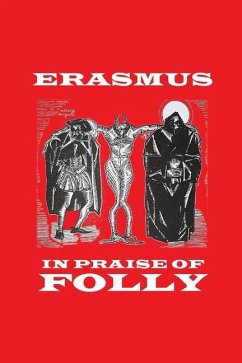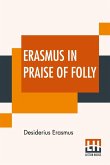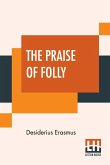NOT YOUR PROFESSOR'S FOLLY. Renaissance-era theologian Desiderius Erasmus (1466-1536) wrote In Praise of Folly in the early sixteenth century. A seminal work, it has remained in print ever since. In Praise of Folly first appeared in Latin and was eventually translated into various European languages. An English translation was rendered by clergyman White Kennett (1660-1728) in 1683. Kennett's text remained the standard English translation well into the 20th century. In 1925, Chicago publisher Pascal Covici brought out an edition of In Praise of Folly based on the Kennett translation. A work of many hands, the Covici Edition was limited to eleven hundred numbered copies and sold out quickly. Since then, it has been available only in libraries and in the antiquarian marketplace. The present work is based on the Covici Edition of 1925, includes revisions and corrections to the text, and retains the lengthy introduction entitled "In Praise of Erasmus," written by then Leader of the Chicago Ethical Society Horace J. Bridges. Also included are a selection of the original illustrations by Anthony Angarola, Hans Holbein, Gene Markey, and Paul L. McPharlin, and several other Holbein illustrations that accompanied previous editions of Erasmus' work. Arguably not your professor's Folly (though with all due respect, perhaps it should be), this edition of In Praise of Folly by Desiderius Erasmus is intended to reacquaint modern readers with one of the classics of Renaissance humanism.








